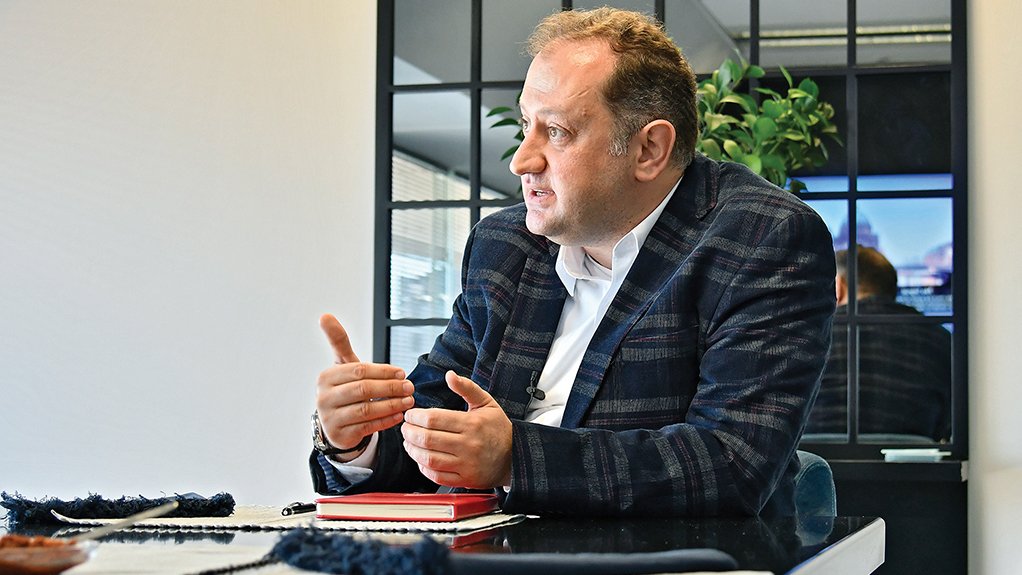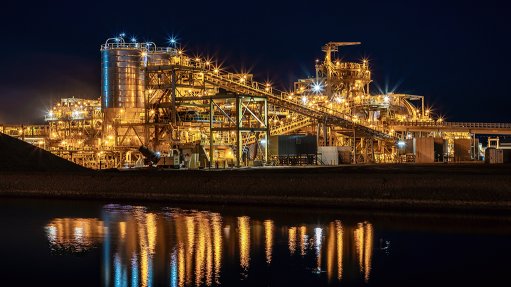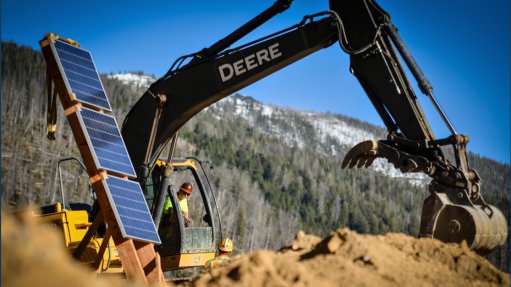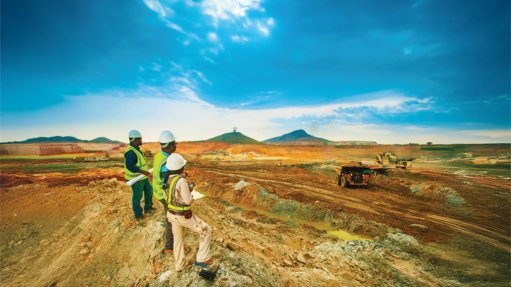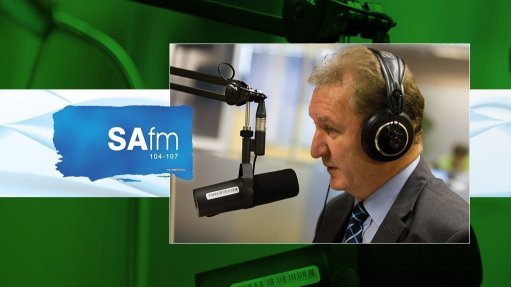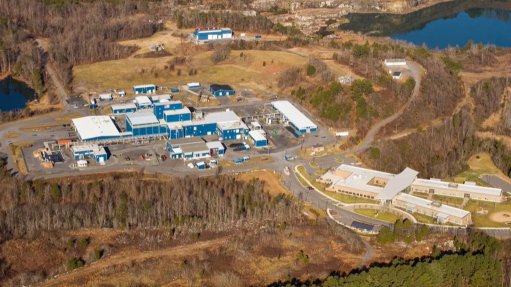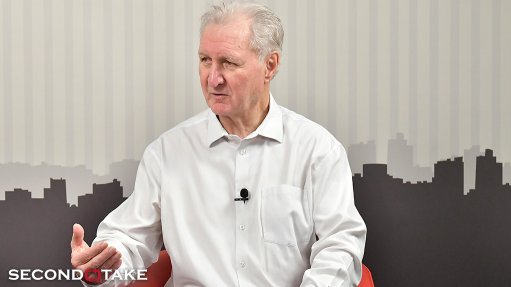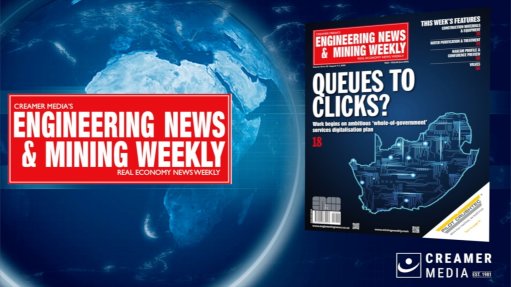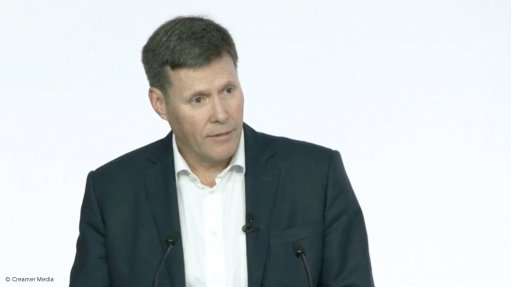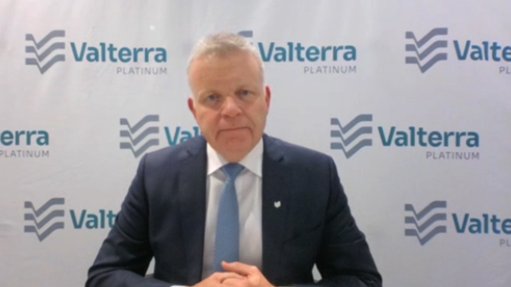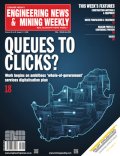Menar’s Canyon Coal confident of new licence while due diligence continues on thermal coal assets being offloaded, but admits Coronavirus likely to cause drastic price falls
Local coal miner Canyon Coal, which is controlled by mining investment company Menar, has applied for a new water use licence (WUL), in terms of the National Water Act, to develop its De Wittekrans coal project.
De Wittekrans has an environmental authorisation, a mining right and a WUL. The reserve will be mined using opencast and underground mining methods; however, a new WUL is needed, as the approved WUL does not address the opencast component of the project.
Menar Group projects manager Clifford Hallatt explains: “We have made good progress with the respective subdirectorates within the Department of Water and Sanitation, and have addressed all their comments by proposing proven mitigation measures to limit the potential impacts that might emanate from the mining activities.”
He adds that the company is confident that a new WUL will be issued within the next two months.
The new WUL would, from a feasibility point of view, unlock the project, as opencast mining can usually be undertaken at a lower cost per ton compared with underground mining, Hallatt points out.
Owing to this, the opencast component at De Wittekrans is regarded as a “catalyst for the development of the larger project”.
The project programme suggests that construction will start in July. First coal is expected by October, with a subsequent ramp-up until steady-state production is achieved.
He explains that the bulk of the reserve will be mined through underground mining, owing to the depth of the coal below surface. One of the opencast pits, nearest to the processing plant, has been earmarked as the mine’s access point into the underground reserve.
“We intend to begin with the development of underground infrastructure as soon as the production target from the opencast pits has been reached and maintained, and the processing plant has been commissioned, with all the typical teething problems resolved.”
In addition to establishing support infrastructure, such as power supply, ventilation and lamp rooms, the development of the underground workings includes the stabilisation of the high wall in the opencast pit to construct the adit to access the underground coal.
“The establishment of the underground infrastructure will occur in phases. “These phases are linked to the progress of the underground development, in other words, the availability of pit room within which the subsequent sections will operate,” says Hallatt.
As soon as steady-state production has been reached, the mine will produce 300 000 t a month over 22 years, excluding the construction and ramp-up phase of the project.
Product from the mine has been offered to State-owned power utility Eskom through two separate tender processes. Hallatt states the company is hopeful that commercial negotiations with Eskom will be concluded in the near future.
Menar doing due diligence on thermal coal assets being offloaded
Meanwhile, Menar continues its due diligence on thermal coal assets that have been placed on the market by companies wishing to offload them out of their portfolios.
“If we get a good deal, we’ll look at making acquisitions,” says Menar MD Vuslat Bayoglu.
Such acquisitions would be in addition to the company’s own R7-billion project pipeline, for which mining rights, environmental authorisations and water-use licences are meeting timelines, with the exception of the Palmietkuilen opencast thermal coal mining project, near Springs, on the East Rand.
“Palmietkuilen’s our only disruption,” says Bayoglu.
This disruption is the result of the decision of Environmental Affairs Minister Barbara Creecy to uphold an appeal against the project on the grounds that the area has high agricultural potential, which Menar is contesting in court.
Menar is hopeful that the courts will decide in its favour in view of Palmietkuilen’s importance to State-owned electricity utility Eskom as well as to the community. The mine will employ 800 people and a coal processing plant on the property will ensure that Eskom gets “the right quality coal at the right price”, notes BBayoglu.
In addition to Plamietkuilen, Menar is also still intent on commencing the De Wittekrans thermal coal project, in Hendrina, this year.
“If we can sort out the regulatory issues with Palmietkuilen, we’ll still start both projects this year. We’ve bought the land required for surface infrastructure and underground access at De Wittekrans with the farmers where open cast mining will take place, so it’s safe to go. It’s also a long life mine that will employ about 400 people and assist the community,” he says.
Menar’s R300-million Riversdale Anthracite Colliery underground project, in Vryheid, KwaZulu-Natal, is in the final stages of water-use licence approval. This project will employ about 200 people in a job-short old coal/anthracite mining area, where most of the mines have closed.
A start in 2021 is planned at Witfontein, an underground coal project, located north-west of Bethal, in Mpumalanga, which will employ about 500 people and require an investment of about R1-billion.
Also in 2021, the 800-employee, seven-million-ton-a-year Springfield opencast coal project is expected to go ahead in Vereeniging, 23 km from Eskom’s Lethabo power station, and next to South32’s ferromanganese plant, in Meyerton. This is earmarked for supply not only to Lethabo but export markets because of its rail link.
“We’re planning to build a loop to take the product to the Richards Bay Coal Terminal,” says Bayoglu.
Collectively, the projects will create 5 600 jobs, which would elevate Menar’s total employee complement from the current 3 800 people to 9 400 by the end of 2022.
These investments could prove supply positive at a time when banks are not providing capital for coal mining.
So far, Menar has been able to self-fund projects. “I think it’s very difficult at the moment to get any funding for a coal-fired power station or a coal-mining project from any banks anywhere in the world.
Menar makes progress with gold project in Kyrgyzstan
The company, which is planning to invest R7-billion in coal projects in South Africa, is also progressing a gold project in Kyrgyzstan.
“We’re looking at a sizeable gold project,” says Bayoglu, who is hoping that the Kyrgyzstan project will yield one-million to three-million ounces of gold.
The project site is in the south-west of the landlocked country in central Asia, where surface sampling has produced promising results.
“We’ve built the road and we’re going to start drilling in spring,” says Bayoǧlu, who sees gold as a good hedge.
The company’s Kyrgyzstan gold pursuit began with an 80 000 oz gold dump and then advanced to two prospecting rights.
“We’ve finished all the pre-drilling on the one prospecting right and it looks very promising,” he says.
In South Africa, Menar controls and manages Canyon Coal, Zululand Anthracite Colliery, Kangra Coal and Sitatunga Resources. Canyon, which operates collieries and processing plants in the Mpumalanga and Gauteng provinces, is also involved in local exploration projects.
Its strategy is to focus on developing its coal projects while diversifying into other minerals.
The group’s first manganese operation, in the Northern Cape, is unfolding, while due diligence is under way on two other manganese projects in the same province.
“We’re very interested in manganese mining,” Bayoǧlu emphasises to Mining Weekly.
Copper in South Africa; chrome in South Africa and Zimbabwe; copper/cobalt in the Democratic Republic of Congo; and nickel/cobalt in Turkey, are also in the company’s project sights.
At this stage of its growth phase, Menar does not distribute dividends but uses the cash it generates to create new mines. The only outside funding it uses is equipment funding provided by equipment manufacturers.
All the cash generated within the business is channelled back into the business to develop new projects.
It engages in concurrent mine rehabilitation and advances with environmental authorisation and water-use licensing. It runs lean operations that can continue when prices are low.
Last year, Menar acquired East Manganese, in the Northern Cape, through its mining development subsidiary Sitatunga Resources. A water-use licence for East Manganese is expected soon.
Coronavirus likely to cause drastic price falls
Unfortunately, Menar says that the reduction in the consumption of mined products that the coronavirus is causing will likely result in a drastic fall in prices.
While commodity prices are not feeling the full impact yet, China’s economic growth is slowing and its steel production is declining.
Metals and minerals like manganese, chrome, iron-ore and metallurgical coal are not being consumed at the rate they were before the virus spread.
One of the suppliers of manganese and chrome to China and one of the biggest suppliers of iron-ore to the Asian country, South Africa is poised to be impacted.
“There’s a huge disruption and people might be underestimating what’s happening. I think prices are going to come down drastically, and this will not be good for the mining industry,” Bayoglu tells Mining Weekly.
The crash of the Purchasing Managers Index of China was, he said, an indication that the impact of the coronavirus on metals and minerals would be severe.
The captains of some ships and their crews were refusing to offload the cargoes in China for fear of contracting the virus.
“Shipping companies are in trouble because of the disruption. Because of coronavirus, their staff do not want to go to China, even though China is trying its best to keep things under control,” he said.
“If you think about a manganese mine producing manganese but not being able to offload that manganese, that company will be badly affected. If they don’t get the revenue, after a while they’ll be in financial trouble,” he said.
Menar suspends mining operations for Covid-19 lockdown
Meanwhile, Menar has suspended all underground mining operations in full support of President Cyril Ramaphosa’s plans to mitigate the impact of Covid-19.
“We support all efforts to enforce social distancing, including confining most people to their homes to prevent social and nonessential business activities [for the duration of the lockdown],” states Bayoglu.
Menar’s subsidiaries include mining and exploration companies. They are Canyon Coal, with operations in Mpumalanga and Gauteng; Zululand Anthracite Colliery in KwaZulu-Natal; and Kangra, in Mpumalanga.
“The health and safety of our employees is our top priority. We have, therefore, commenced procedures to place all Menar group mines, opencast and underground, as well as our processing plants on care and maintenance, to allow all our employees time to return in a safe and orderly manner to their homes, before the start of the mandatory lockdown,” Bayoglu says.
“Safeguarding and maintaining our infrastructure along with the continued compliance with all relevant health and safety, environmental and other relevant legislative requirements will remain in place throughout the national lockdown,” Bayoglu adds.
He expressed hope that the President’s orders would be fully complied with and normal business would resume afterwards.
“We have made it publicly known that we plan to invest R7-billion in greenfield investments in the next two years and create over 5 000 jobs. The efficacy of the President’s directive will be critical in rebuilding the economy.”
“These tough measures are necessary to combat the Covid-19 pandemic and we urge all our employees, partners and stakeholders, along with all our fellow South Africans to comply with all the rules and regulations issued by the South African National Coronavirus Command Council in order to halt the spread of the pandemic and ensure South Africans’ health is preserved and to avoid the loss of life,” Bayoglu concludes.
Comments
Announcements
What's On
Subscribe to improve your user experience...
Option 1 (equivalent of R125 a month):
Receive a weekly copy of Creamer Media's Engineering News & Mining Weekly magazine
(print copy for those in South Africa and e-magazine for those outside of South Africa)
Receive daily email newsletters
Access to full search results
Access archive of magazine back copies
Access to Projects in Progress
Access to ONE Research Report of your choice in PDF format
Option 2 (equivalent of R375 a month):
All benefits from Option 1
PLUS
Access to Creamer Media's Research Channel Africa for ALL Research Reports, in PDF format, on various industrial and mining sectors
including Electricity; Water; Energy Transition; Hydrogen; Roads, Rail and Ports; Coal; Gold; Platinum; Battery Metals; etc.
Already a subscriber?
Forgotten your password?
Receive weekly copy of Creamer Media's Engineering News & Mining Weekly magazine (print copy for those in South Africa and e-magazine for those outside of South Africa)
➕
Recieve daily email newsletters
➕
Access to full search results
➕
Access archive of magazine back copies
➕
Access to Projects in Progress
➕
Access to ONE Research Report of your choice in PDF format
RESEARCH CHANNEL AFRICA
R4500 (equivalent of R375 a month)
SUBSCRIBEAll benefits from Option 1
➕
Access to Creamer Media's Research Channel Africa for ALL Research Reports on various industrial and mining sectors, in PDF format, including on:
Electricity
➕
Water
➕
Energy Transition
➕
Hydrogen
➕
Roads, Rail and Ports
➕
Coal
➕
Gold
➕
Platinum
➕
Battery Metals
➕
etc.
Receive all benefits from Option 1 or Option 2 delivered to numerous people at your company
➕
Multiple User names and Passwords for simultaneous log-ins
➕
Intranet integration access to all in your organisation



